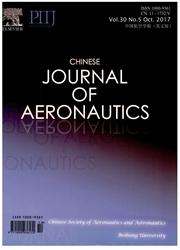

 中文摘要:
中文摘要:
这份报纸为互给的系统安全分析论述全球敏感分析的应用飞机引擎。与本地敏感分析结果相比,全球敏感分析能在参数相互作用上提供更多的信息,它在复杂系统安全分析是重要的。首先,互给的确定的航空引擎热力学模型被开发,兴趣的参数被定义为随机的变量。然后,样品被蒙特卡罗方法为根据因素分发的定义在引擎模型使用的参数产生。最后,从引擎模型的结果被产生,重要性索引是计算的。基于分析结果,设计被改进满足适航性要求。结果表明由使用全球敏感分析,参数能关于他们的重要性被评价,首先包括顺序索引和全部的敏感索引。由减少参数的无常并且调整输入的范围,安全标准将满足。
 英文摘要:
英文摘要:
This paper presents an application of global sensitivity analysis for system safety analysis of reciprocating aircraft engine. Compared with local sensitivity analysis results, global sensitivity analysis could provide more information on parameter inter- actions, which are significant in complex system safety analysis. First, a deterministic aviation reciprocating engine thermody- namics model is developed and parameters of interest are defined as random variables. Then, samples are generated by Monte Carlo method for the parameters used in engine model on the basis of definition of factor distribution. Eventually, results from engine model are generated and importance indices are calculated. Based on the analysis results, design is improved to satisfy the airworthiness requirements. The results reveal that by using global sensitivity analysis, the parameters could be ranked with respect to their importance, including first order indices and total sensitivity indices. By reducing the uncertainty of parameters and adjusting the range of inputs, safety criteria would be satisfied.
 同期刊论文项目
同期刊论文项目
 同项目期刊论文
同项目期刊论文
 期刊信息
期刊信息
